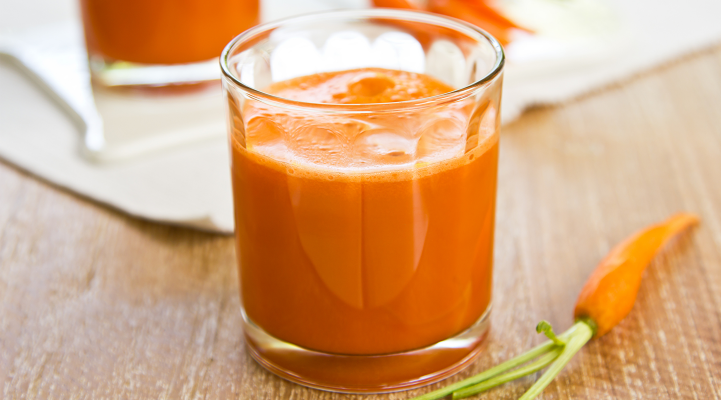It’s known as ‘the eye-and-skin vegetable’ and as ‘a cure for Spring fever’, but the humble carrot’s got even more to offer!
The carrot’s actually got the lot when it comes to nutrition. Well, just about, anyway… and we really ought to be paying more attention to this incredible vegetable. Not only do carrots contain valuable B-complex vitamins, such as folic acid, and bioflavonoids that support cellular respiration, they also contain, amongst other things, vitamins D, E and K, essential oils, iron, magnesium and phosphorus. But, what makes carrots stand out from the crowd, health-wise, is that they are rich in alpha and beta-carotene (the ‘brother and sister’ of vitamin A), making them the absolute front-runner of the veggie world. The reason for this is that carotenoids are free radical scavengers and are especially effective in protecting cells, kicking in when a cell has been damaged and supporting the immune system’s repair mechanisms. Carrots are also indispensable when it comes to combating vitamin deficiencies – for example, in combating lethargy, in the condition known as ‘Spring fever’.

Carotene, as a precursor to vitamin A, is highly useful and is believed to improve cognitive abilities, provided that some fat is also added to the diet in the form of butter or extra virgin oils containing vitamin E, as only then can fat-soluble vitamin A be properly synthesised. Carrots, with their high concentration of vitamin A, are good for the eyes and skin, improving vision (have you ever seen a rabbit wearing glasses?) and making the skin more elastic. It is thought that carrot constituents might even have a positive effect in helping with asthma, stress and colds – and, on top of all this, carrots also provide natural dietary fibre.
When it comes to storing carrots, it is recommended that you cut off the green tops first, otherwise, within a couple of days of harvesting, the leaves will become limp and then start to draw moisture out of the carrot turning it wrinkly, unsightly and soft. So, get your carrots into a refrigerator as soon as possible, where they can be stored for up to 50 days; or, even better, put them into a Liebherr BioFresh compartment where they can be kept for as long as 80 days!
If you have any questions about this post, please write to us. Use the Comment function below this post or discuss it with us on Facebook.